
Art Direction
In this Pete Smith Specialty short, we see how real-life investigator Jo Goggin used a motion picture surveillance camera to gather evidence and disprove a fraudulent insurance claim.

Art Direction
In this comedic Pete Smith Specialty short, average housewife Mrs. George T. Hardnose's day is recalled.

Art Direction
In this comedic Pete Smith Specialty short film, a homeowner experiences a series of mishaps while taking a day off from the office.

Art Direction
Narrator John Nesbitt laments the disappearance of the rural one-room schoolhouse in America. He reminisces about his own days as a student in such a school and how his teacher, Miss Turlock, influenced so many students. Many of them reunite at the school on Miss Turlock's last day, when the school was closed in 1940.
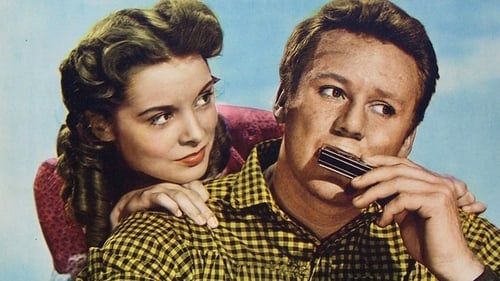
Art Direction
A mysterious Civil War veteran courts a Missouri farmer's daughter amid postwar unrest.

Art Direction
This comedic Pete Smith Specialty short examines the folly of using "home remedies" for various ills.

Art Direction
In this John Nesbitt's Passing Parade short, a man traces his history by the succession of cars his father owned. [This short appears in its entirety during MGM's short feature "The Great Morgan".]

Production Design
Performances of three well-know compositions. An orchestra plays Flight of the Bumblebee. Carlos Ramírez sings The Donkey Serenade with a boy on penny whistle. Finally, Ramírez and Lucille Norman sing lyrics to Tales from the Vienna Woods. (This film appears in its entirety within MGM's short feature, "The Great Morgan")

Art Direction
This Pete Smith Specialty comedic short details the troubles the average woman faces with maintaining beauty and fitness.
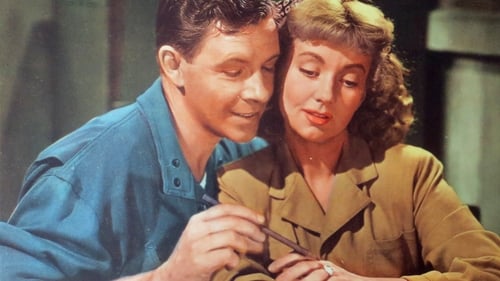
Art Direction
A showgirl working for an inventor battles crooks, who want to steal his ideas.

Art Direction
This MGM Passing Parade series short recounts how English chemist John Walker invented the wooden friction match during the 1820s.

Production Design
Two expert badminton players demonstrate how the best play the game, including some slick trick shots. Meanwhile, befuddled bungler Bellamy B. Birdbrain bumbles his way through building a backyard badminton court. (This film is played in its entirety in MGM's short feature "The Great Morgan")

Art Direction
This entry in the Crime Does Not Pay series focuses on the U.S. Food and Drug Administration's effort to ensure that drugs are fully tested before they are sold to consumers. Two unscrupulous investors market the drug 'Diabulin' as a substitute for insulin after preliminary tests show good results. After a short time, however, users start dying from the drug. The FDA and the state attorney general's office then go after the drug marketers.

Art Direction
This John Nesbitt's Passing Parade short tells the story of 18th Century French physician Dr. Philippe Pinel, who initiated enlightened, humane treatment of the mentally ill.

Art Direction
A young woman who is unable to pay her rent gets some unexpected help when the other tenants throw a last-minute rent party in her apartment. In the process, they all charm the landlady out of a year's rent. The entire story is told in song (swing music) and dance (Jitterbug, Lindy Hop etc.).

Art Direction
This John Nesbitt's Passing Parade short takes a look at the typical American barbershop throughout the years.

Art Direction
In this MGM Crime Does Not Pay series short, a young man graduates from the police academy at the top of his class. He then teams up with some local thieves and uses his knowledge of police procedures to pursue a career of undetected crime.

Art Direction
This Crime Does Not Pay entry focuses on fake spiritualists. A mother is worried about her son, who is missing in action. Over time, she gives a con man all of the family savings to find reassurance that her son is all right. When she can no longer pay, events take a tragic turn.

Art Direction
In this MGM Crime Does Not Pay series short, a criminal idolizes the life of a famous gangster - unaware that his hero met a tragic end.

Art Direction
This short film takes a look at the tools and methods used to forecast the weather.

Art Direction
An orphan is uncertain whether she wants to remain with her adoptive family or return to the orphanage.

Art Direction
A police detective (Edward Arnold) uses fluorescent powder to catch a pickpocket (Selena Royle) and her gang.

Art Direction
A police psychiatrist is enlisted to catch a killer.

Art Direction
This Pete Smith Specialty short takes a humorous look at the inconsiderate pests whose annoying habits make enjoying a movie impossible.

Art Direction
This patriotic short film promotes America's war effort at home. The story looks at a fictional small town's main street, seeing where additional workforce, for increased production of materials needed by the military, might come from.

Art Direction
A teenaged shoeshine boy urgently tries to raise the remaining amount of money he needs to purchase a secondhand bugle before 6p.m.

Art Direction
Robert Benchley answers questions ranging from across the political spectrum.

Art Direction
A Yugoslav man, dying after being shot while attempting to help defend his village, writes a letter of encouragement and hope to his unborn child, explaining what he was fighting for in resisting the Nazi invasion of his homeland. A John Nesbitt's Passing Parade short.

Art Direction
This short uses a musical suite to show Americans what they are fighting for in World War II. As an orchestra in military dress plays different "chapters" of the work, relevant excerpts from MGM films show the history of America. The chapters are: 1) Birth of Freedom; 2) The Land Divided; 3) Coming of Age: 4) Land of the Free. At the end, a chorus sings a patriotic exhortation. (Written by David Glagovsky)

Art Direction
This Passing Parade series short examines the origins of three popular nursery rhymes.

Art Direction
This serious Pete Smith Specialty series entry encourages industry to hire people with disabilities to help with the war effort. As a boy, Ben Helwig was blinded in an accident while playing baseball. He eventually acquired a guide dog and now works in a defense plant.

Art Direction
Young couple Joe and Mary Thompson love each other and their children despite the struggles that they have that are typical of most young couples early on in their married life, such as the basics of trying to make ends meet. But after Joe leaves Mary and their inner city life, she finds an unpostmarked envelope under their apartment door with her name written in Joe's handwriting. It contains a letter explaining why he left. It has primarily to do with his feeling that another part of his life was being left behind for his married life, that other life which consists of a want to travel, especially sail the south seas. The actual impetus to leave was inadvertently fostered by Mary through the birthday present she bought for him. So what actually did happen to Joe and will he ever return to his loving wife?

Art Direction
Plan for Destruction is a 1943 American short propaganda film directed by Edward Cahn. It looks at the Geopolitik ideas of the ex-World War I professor, General Karl Haushofer, who is portrayed as the head of a huge organization for gathering information of strategic value and the mastermind behind Adolf Hitler's wars and plans to enslave the world. The film was nominated for an Academy Award for Best Documentary Short.

Art Direction
In December 1892, a silent mysterious and very private man, for whom a new house has just been built, arrives in the small town of Bridgewood to keep a promise.

Art Direction
This Crime Does Not Pay short shows how cooperation among all the nations of the Americas helps the war effort. In this case, a US government agent travels to Chile and Colombia. He works with local authorities to try to thwart an Axis plan to ship stolen ammunition.

Art Direction
This short looks at the illness anthropophobia, the fear of people. In 1901, young Catherine Starr, who lives in a small English coastal town, has an argument with her fiancé. He leaves her house, goes off to serve in the Boer War, and dies of malaria. Catherine blames herself for his death and fears others will also blame her. She does not leave her house for forty years. Groceries are delivered to the house, but no one sees who retrieves them. When the Nazis bomb her house in September 1941, she is forced to cope with the outside world.

Art Direction
After Buckwheat tells the gang he's seen a big monkey, Spanky, Froggy and Mickey decide to teach him once and for all not to lie. What the gang doesn't know is that the monkey is real, and hilarity will ensue.

Art Direction
This Crime Does Not Pay series entry dramatizes the idea that during wartime, people should not discuss anything related to their work when in public. A casual remark can be overheard by an enemy agent and used to sabotage the war effort. In this short, the story involves shipments of parts to a defense plant.

Art Direction
This John Nesbitt's Passing Parade short explores the origins of various customs such as shaking hands, kissing, and why ships are christened.

Art Direction
The Devil works with Adolf Hitler to cause inflation in the United States.

Art Direction
The Our Gang kids worry that Darla's new stepmother will be an evil stepmother like of fairy tale fame.

Art Direction
This Best Short Subject Academy Award winning film begins in the spring of 1940, just before the Nazi occupation of the Benelux countries, and ends immediately after the Japanese attack on Pearl Harbor. It chronicles how the people of "Main Street America", the country's military forces, and its industrial base were completely transformed when the decision was made to gear up for war. Original footage is interspersed with contemporary newsreels and stock footage.

Art Direction
This MGM Passing Parade series short tells the story of Julian Poydras, whose encounter with a girl at Mardi Gras had a profound effect on his later life.

Art Direction
In this Pete Smith Speciality, the audience is asked a series of multiple-choice questions on various subjects.
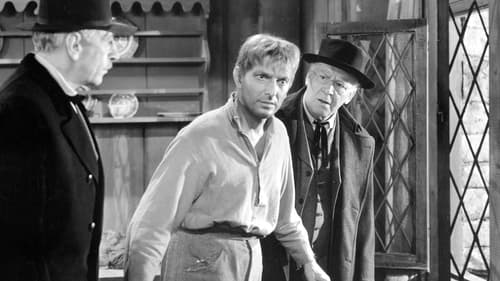
Art Direction
In this classic Edgar Allan Poe story, a man commits a murder, but afterward the victim's beating heart torments the murderer's mind.

Art Direction
On Mickey's birthday, Miss Pipps, the school teacher, serves cake and ice cream during school hours. Sour old Mr. Pratt, head of the school board, stumbles on the festivities and has Miss Pipps fired. The Our Gang conspire to save her job by inviting all the parents to a special meeting. There the gang stage a melodrama, with Mr. Pratt portrayed as Simon Legree. The parents react by demoting Mr. Pratt to janitor. They appoint kindly Mr. Swanson, the current janitor, to head the school board. And of course they reinstate Miss Pipps as school teacher. Sometime later, in an act of forgiveness, Miss Pipps and the gang hold a birthday party for Pratt who is then humbled by the experience.

Art Direction
This short film shows how the war department utilizes a Ph.D., a chimp, and three dogs to help design aptitude tests for men applying for work.

Art Direction
In this MGM Crime Does Not Pay series short, a man and his racketeer buddies devise a scheme to bilk those already seemingly desperate for money of what little they have.
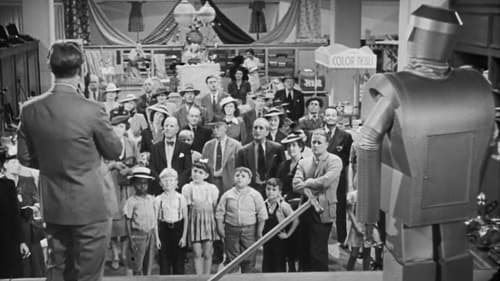
Art Direction
Spanky and the gang discover a demonstration of a "human-like" robot named Volto and are inspired to create a robot themselves to do their chores for them. Slicker Walburn convinces them they will need "invisible rays" to bring it to life which he just happens to have to sell to them. As they rush off to get their money, Slicker gets Boxcar Smith to wear the robot's outer body so when he "brings" the robot to life, it will be Boxcar bringing it to life. The gang unsuspectedly gets their robot to mow the lawn at Froggy's house, but with a signal from Slicker, Boxcar runs amok and mows down everything in his path. Froggy gets to explain what happened to his parents who bust up the fraud and get the miscreants to work with the gang to clean up the mess.

Art Direction
In this Pete Smith Specialties short, two professional dancers beautifully demonstrate the rumba and conga while actors humorously display some incorrect techniques for those dances.

Art Direction
While playing baseball, Mickey runs into the street to catch a fly ball and is struck by a car. When the gang visit him in the hospital they are appalled to find the ward populated by many other children injured in automobile accidents. The Our Gang kids resolve to do something about the problem, and thus the "1-2-3-Go Safety Society" is born.

Art Direction
A 3-D short subject in which the narrator goes to a creepy old house in search of his missing aunt. There he encounters the Frankenstein monster, a witch, a wooden Indian who comes to life, and assorted other monsters and frightening characters, all of whom manage to throw something toward the camera.

Art Direction
Mickey's mom is about to give birth, but he gets worried when he reads that every fourth child born is Chinese. Spanky and the gang then visit a Chinese friend and learn that kids are kids, no matter where they are from.

Art Direction
This MGM Crime Does Not Pay series short looks at the U.S. Department of Immigration's efforts to halt the smuggling of illegal aliens into the country. Desperate immigrants, tired of waiting for legal entry, pay exorbitant fees and risk a grisly death to enter by illegal means.

Art Direction
The gang offers to help their pal Waldo attract customers to his lemonade stand. Redecorating their clubhouse as a lavish nightclub, the kids stage an elaborate floor show, with Darla Hood as the star vocalist.

Art Direction
Part of MGM's "Crime Does Not Pay" series, this short film focuses on crimes revolving around pension scams.

Art Direction
This entry in MGM's "Crime Does Not Pay" series deals with shady companies selling fake merchandise.

Art Direction
Questions and answers on various subjects, from Lady Godiva to the Panama Canal.

Art Direction
This Passing Parade entry tells the story of Dr. Joseph Goldberger (1874-1929), a Hungarian immigrant who devoted his life to finding the cause of pellagra, a disease that killed hundreds of thousands in the southern United States. Although the medical community believed that the condition was caused by a virus, Goldberger proved that a healthy diet was the cure.
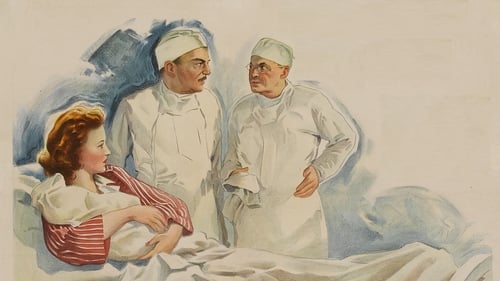
Art Direction
In this Crime Does Not Pay series short, a young woman wants to save her baby, but is afraid of telling her parents and has no money to pay the hospital costs involved. She falls prey to a baby-for-sale racket with quack doctors performing their services.




















































